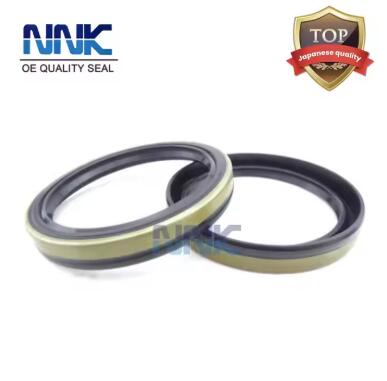What Is an Automotive Oil Seal and How Does It Work?
Automotive oil seals are critical for maintaining engine efficiency by preventing leaks and protecting components. This article explains their purpose, functionality, and practical applications.
What Is an Automotive Oil Seal?
An automotive oil seal, often referred to as a shaft seal, plays a crucial role in preventing oil leakage from engines and gearboxes while keeping contaminants at bay. This essential component ensures optimal performance and safeguards vital machinery against wear and tear.
How Does an Automotive Oil Seal Work?
The oil seal operates by forming a barrier between rotating and stationary parts. Its flexible lip maintains contact with the shaft, effectively preventing oil from escaping while also stopping dirt and debris from entering the system.
Key Components of Automotive Oil Seals
| Component | Function |
|---|---|
| Outer Casing | Provides structural integrity and fits securely into the housing. |
| Sealing Lip | Ensures constant pressure against the shaft to prevent leaks. |
| Spring | Boosts the sealing lip's pressure for enhanced sealing efficiency. |
Types of Automotive Oil Seals
Rotary Seals: Specifically designed for rotating shafts like crankshafts and camshafts.
Static Seals: Created for stationary components.
Dynamic Seals: Capable of handling applications involving axial or radial movements.

Real-World Example
A logistics firm experienced recurring gearbox failures due to oil leaks. After switching to high-quality oil seals, they saw a 30% reduction in maintenance costs and an extension in component lifespan, which significantly enhanced the overall reliability of their fleet.
Benefits of Automotive Oil Seals
Prevent oil leaks, thus minimizing waste and environmental impact.
Prolong the life of the engine and gearbox by keeping contaminants out.
Improve vehicle performance and fuel efficiency.
Common Signs of Oil Seal Failure
Noticeable oil leaks observed beneath the vehicle.
Unexpected noises emanating from the engine or gearbox.
Increased wear and damage to engine components.
FAQ
How often should oil seals be replaced?
Typically, oil seals last between 100,000-150,000 miles, but it is wise to have them checked during regular maintenance.
What causes oil seals to fail?
Common failure reasons include wear and tear, improper installation, and exposure to extreme temperatures.
Are oil seals universal?
No, oil seals differ based on size, material, and application. It is crucial to select a seal that matches your vehicle's specifications.
Can I replace an oil seal myself?
While replacing an oil seal is feasible for those with technical skills, professional installation is always the best choice to ensure proper performance.
Conclusion
Automotive oil seals are vital for preventing leaks, protecting components, and improving vehicle efficiency. Regular inspections and timely replacements are essential for ensuring long-lasting performance and minimizing maintenance costs.

